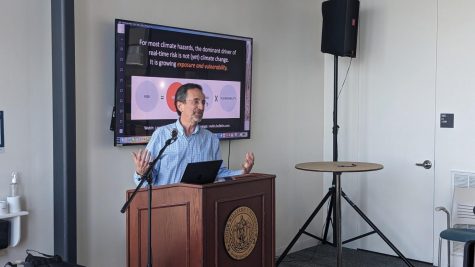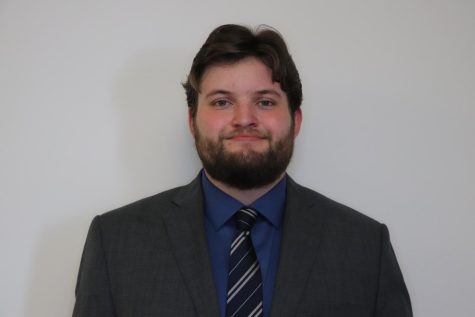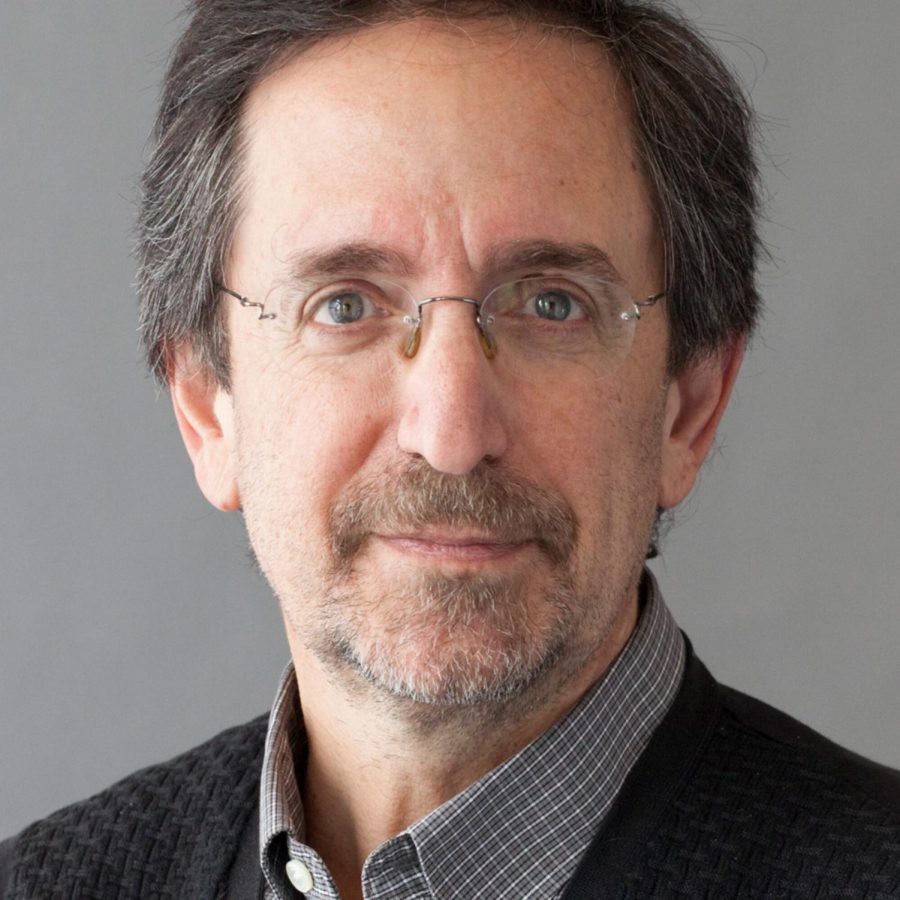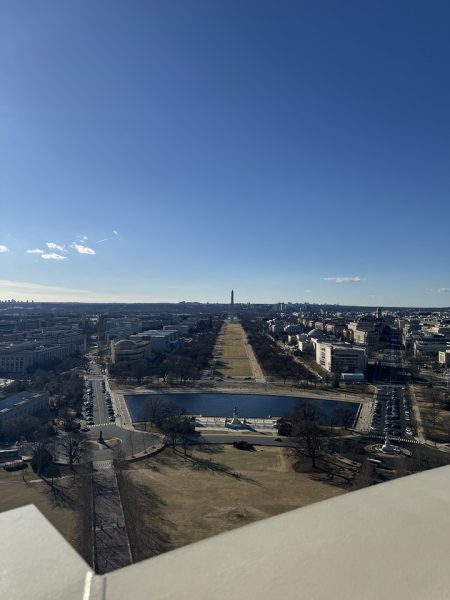Andrew Revkin delivers keynote speech during the SPJ Region 1 Conference at RWU
Environmental journalist Andrew Revkin gave a keynote address on climate coverage at the 2023 Society of Professional Journalists (SPJ) Region One Conference.
Climate change still remains one of the biggest and most pressing stories of our time. The question is, how do we report on it? To those like environmental journalist and director of the new Initiative on Communication and Sustainability at Columbia University, Andrew Revkin, the answer is fewer climate stories and more journalists who are committed to opening a dialogue and talking to those whose stories and experiences have not been told yet.
On April 21, Revkin delivered a keynote lecture on climate reporting at the 2023 Society of Professional Journalists Region 1 Conference at Roger Williams University. Revkin spoke on the past, present and future of the climate story and made the case that it is not about a single issue, but rather the culmination of several factors that are all affected by climate change.
“There’s no one way, there’s no one great story,” said Revkin. “This is not about a better story. There’s no magical, better story that’s going to tip the world quickly building a more resilient relationship between humans and this climate system.”
Revkin spoke on the current state of climate reporting and explained that much of it is focused on political debate and controversy rather than the actual issues at hand.
“There’s our implicit interest in conflict and debate,” said Revkin. “Most climate stories that seem to percolate on the front pages are really about political fights more than the actual science.”
Revkin provided a solution to the issue of politics overtaking a climate story which is to have a science reporter work on the story so that the issues themselves are at the forefront rather than the debate around them.

Revkin speaks on better ways to
report on climate issues at the SPJ
Region 1 Conference
Another issue that is prevalent in the climate story is community engagement and access to information. Revkin argued that, while narrative storytelling and investigative journalism are important to help stories gain traction, the focus should be shifted to local communities who are underrepresented in media.
“It’s about facilitating community access to information that can bolster resilience,” said Revkin. “If the community doesn’t have someone who can be at the town council meeting to foster that dynamic of a local level, then all that federal [climate] spending will be for naught.”
Revkin also discussed cultural cognition in media consumption or the idea that our cultural filters and personal biases shape the way we either accept or reject knowledge provided to us. He warned against writing stories for the sake of filling a narrative and urged people to talk and be open to everyone’s stories regardless of their political leanings or opinions on your topic.
“To me, the most powerful single tool in covering climate change going forward, along with finding ways to truly engage communities,” said Revkin, “[Is] engaging in dialogue, real dialogue with communities, especially those of marginalized [communities] is really important.”

Sam Elwell is the Managing Editor for The Hawks' Herald who has also served as the Opinions Editor (2021-2022) as well as a staff writer (2020...






